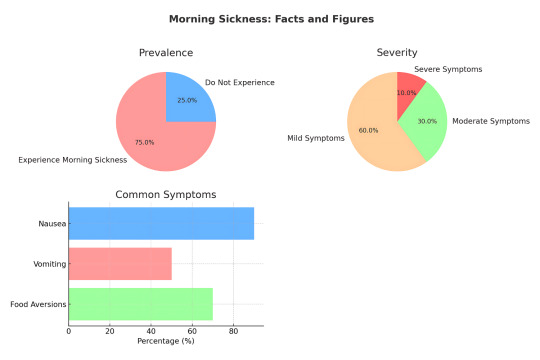#PregnancyChecklist
Explore tagged Tumblr posts
Text
7 Coping Strategies - Single and Pregnant

Single Mom Survival Guide: 7 Essential Tips for Moms-to-Be
Here are seven game-changing strategies to help you rock solo parenting while preparing for your little one's arrival.
Build Your Tribe: Create a support network of friends, family, and other single moms. Don't hesitate to lean on them – they want to help!
Self-Care is Non-Negotiable: Prioritize your well-being with regular exercise, healthy eating, and plenty of rest. Don't skip those prenatal check-ups!
Establish a Routine: Create a flexible daily schedule to help you feel more in control. Prioritize tasks based on your energy levels and don't forget to include "you time."
Master Co-Parenting: If applicable, maintain respectful communication with your baby's other parent. Focus on what's best for your child.
Prepare for Solo Parenting: Get clear on your parenting goals and start stocking up on essentials. Set up systems now to make life easier once baby arrives.
Tackle Finances Head-On: Create a budget, explore assistance programs, and start building an emergency fund. Consider talking to a financial counselor if needed.
Boost Your Confidence: Focus on your strengths and surround yourself with supportive people. Remember, you're doing an amazing thing!
The road ahead will have some bumps and you need a strategy. You might not feel it right now but you're well-equipped to handle whatever comes your way. Be kind to yourself, celebrate your victories, and never be afraid to ask for help. Your strength, love, and dedication are all your little one needs to thrive.
Share
Rewrite
#SingleMomPregnancy#SoloPregnancyJourney#PregnancyChecklist#ExpectingAlone#SingleParentPregnancy#PregnancyTips#SingleMomToBe#PregnancyPlanning#SoloMomPrep#PregnancyGuide#SingleAndPregnant#MomToBe#PregnancyResources#IndependentMotherhood#PregnancyAdvice#stress#mentalhealth#coping mechanism#coping skills#trauma coping#mental wellness#mental health#mental health support
3 notes
·
View notes
Text
instagram
Curious about PCOD and pregnancy? While it may pose challenges, many women triumph in successful pregnancies.😊
PCOD in pregnancy could heighten risks like gestational diabetes, high blood pressure, and preterm birth.🚼
The good news? Early detection and proper management can minimize these risks.🌟
Here are key tips for managing PCOD risks during pregnancy: 1️⃣ Embrace a healthy lifestyle with a balanced diet and exercise.🥗🏋️♀️ 2️⃣ Regular doctor visits are a must.👩⚕️ 3️⃣ Monitor blood sugar and blood pressure levels.🩺💉
Don’t skip those crucial pregnancy scans for your baby’s well-being.📷👶
Call now:📞 +91 9900811118 for Pregnancy Scan.
#addonhealthcare#addonscanslabs#drsunilkumargs#PCODandPregnancy#HealthyPregnancyWithPCOD#PCODAwareness#PregnancyWellness#PCODManagement#GestationalHealth#PCODPregnancyTips#WellnessDuringPregnancy#HealthyChoicesForPCOD#PregnancyChecklist#PCODandMotherhood#ManagePCODRisks#PrenatalCare#Instagram
1 note
·
View note
Link
During your 3rd trimester i.e., final stage of pregnancy, you need extra care and support. Even though you get relentless with the entire pregnancy experience...
0 notes
Text
Telling Work You’re Pregnant

Congratulations! You’re pregnant, and that’s a big deal! Between all the excitement and the to-do lists that come with expecting a baby, one thing may be causing some anxiety: how and when to tell your boss and coworkers you’re expecting. Sharing the news at work can feel intimidating, but with the right approach, it doesn’t have to be.
In this guide, we’ll walk you through everything you need to know about announcing your pregnancy at work. From choosing the right time to understanding your legal rights and navigating various reactions, this blog covers it all. Whether you’re worried about managing your workload or handling questions from colleagues, we’ve got you covered.
When Should You Tell Work?

Deciding when to tell your employer that you’re pregnant is one of the first things to think about. There’s no hard rule for when to announce the news, but here are a few factors to consider:
1. The End of the First Trimester (12 Weeks)
Many women choose to wait until after the first trimester (around 12 weeks) to share the news. By this point, the risk of miscarriage drops significantly, and you might start showing. It’s also around this time that pregnancy becomes harder to hide, especially if you’re dealing with symptoms like nausea or fatigue.
2. Your Symptoms
If morning sickness is making it difficult to work, or if fatigue is causing issues with your productivity, you may decide to tell your boss earlier. Telling them can allow for necessary adjustments, like taking more breaks or modifying your schedule.
3. Your Job Responsibilities
If your job involves physical tasks that could be risky during pregnancy (like heavy lifting or long periods of standing), it’s a good idea to let your employer know early on. This way, you can discuss adjustments to ensure your safety.
4. Legal Deadlines
In many places, there are legal deadlines for when you must inform your employer. For example, in the UK, you must notify your boss by the end of the 15th week before your baby is due. It’s a good idea to check the laws where you live to ensure you’re following any requirements.
Understanding Your Legal Rights

Before telling your boss, it’s essential to know your rights as a pregnant employee. This will give you confidence during the conversation and help you understand what to expect in terms of support.
1. Maternity Leave
Different countries have different rules regarding maternity leave. For example, in the UK, you’re entitled to up to 52 weeks of maternity leave, with Statutory Maternity Pay available for 39 weeks. In the US, the Family and Medical Leave Act (FMLA) allows for up to 12 weeks of unpaid leave, but this only applies to certain employees.
Check your local laws and your company’s internal policies to know what kind of leave and benefits you’re entitled to.
2. Protection from Discrimination
Most countries protect pregnant employees from discrimination. For example, in the UK, the Equality Act 2010 makes it illegal to treat someone unfairly because of pregnancy. In the US, the Pregnancy Discrimination Act (PDA) ensures that you can’t be fired or demoted because you’re expecting.
3. Reasonable Adjustments
During pregnancy, you may be entitled to reasonable adjustments at work. This could include being allowed to take more breaks, adjusting your workload, or avoiding tasks that could be physically demanding or unsafe.
How to Tell Your Boss You’re Pregnant

Once you’re ready to tell your boss, it’s normal to feel nervous. But don’t worry, you can approach the conversation in a way that feels right for you. Here’s how to get started:
1. Choose the Right Time
Timing is everything. Request a private meeting when your boss isn’t rushed or stressed, so you can have their full attention. You want the conversation to be professional but also positive.
2. What to Say
You don’t have to overthink it. Start by being clear and direct. For example, you could say:
“I wanted to let you know that I’m pregnant. My due date is [insert date], and I’m excited about this new chapter. I’d love to work with you on a plan to transition my responsibilities as I approach my maternity leave.”
3. Offer a Plan
Your boss will appreciate it if you show that you’ve thought ahead. Even though you don’t need to have every detail worked out, it helps to offer ideas about how you’ll manage your workload during your pregnancy and how things will be handled when you’re on leave.
You could say something like:
“I’ve started thinking about how my projects can be covered while I’m on leave. I’d love to discuss ideas with you and work together to ensure a smooth transition.”
4. Be Ready for Questions
Your boss may have questions about how long you’ll be taking off, whether you plan to return full-time, or how your work will be managed during your absence. It’s okay if you don’t have all the answers right now. Just be honest and let them know that you’ll update them as your plans become more concrete.
Managing Reactions from Coworkers

Once you’ve told your boss, the next step is letting your coworkers know. Most colleagues will be excited for you, but as with any big announcement, reactions may vary.
1. When and How to Tell Them
After you’ve had a private conversation with your boss and mapped out a general plan for your leave, it’s a good time to tell your coworkers. You can do this one-on-one or announce it during a team meeting, depending on your workplace culture. If you work remotely, an email or a message in your team chat can work too.
2. Handling Different Reactions
While most people will be thrilled for you, some might have concerns—especially if your absence will impact their workload. Reassure them by letting them know that you and your boss are working on a transition plan to ensure everything runs smoothly.
It’s also important to be prepared for personal or even nosy questions. Some coworkers might ask when you plan to return, how you’ll balance work and motherhood, or if you’re having a boy or girl. You don’t have to answer anything that makes you uncomfortable. Feel free to politely redirect the conversation if needed.
For example, if someone asks about your return date and you’re unsure, you could say:
“I’m still figuring out the details, but I’ll be sure to keep everyone updated as we get closer to my maternity leave.”
Managing Your Workload During Pregnancy
As your pregnancy progresses, you might need to adjust your workload to stay comfortable and healthy. Here’s how to manage work while taking care of yourself:
1.��Prioritize Your Health
Your health and the health of your baby should always come first. If you need to modify your duties because of symptoms like fatigue, nausea, or back pain, speak up. For example, if your job involves a lot of standing or physical labor, ask your boss for adjustments.
2. Delegate When Necessary
If you’re in a leadership role or manage large projects, it’s essential to start delegating tasks as early as possible. This will help avoid a last-minute rush to hand things over before you go on maternity leave.
3. Plan for Your Maternity Leave Handoff
As your due date approaches, work with your boss and team to create a detailed handover plan. This should include outlining ongoing projects, identifying key contacts, and noting important deadlines. The more thorough your plan, the smoother the transition will be—and the less likely you’ll be contacted during your leave.
Returning to Work After Maternity Leave

Though it might feel far off, it’s good to think about your return to work after maternity leave. Many women feel anxious about balancing motherhood and their career, but remember that you don’t have to have everything figured out right away.
1. Ease Back into Work
If possible, try to ease back in with a flexible schedule, such as starting mid-week or working part-time at first. Some companies are open to flexible working arrangements for new mothers, so don’t hesitate to discuss your options with your boss.
2. Set Clear Boundaries
Returning to work after having a baby can be a big adjustment. Be kind to yourself during this transition. Set boundaries with your time and energy, and don’t feel pressured to immediately perform at the same level as before. Give yourself time to adjust to your new routine.
Final Thoughts
Announcing your pregnancy at work may feel overwhelming, but it’s a positive and exciting step. With careful planning, clear communication, and an understanding of your rights, you can manage the conversation with confidence.
Whether you decide to tell your employer early or wait until later in your pregnancy, the most important thing is to approach the situation with a plan and stay flexible. As you prepare for maternity leave and eventually return to work, don’t forget to prioritize your health and well-being along the way.!
#SingleMomPregnancy#SoloPregnancyJourney#PregnancyChecklist#ExpectingAlone#SingleParentPregnancy#PregnancyTips#SingleMomToBe#PregnancyPlanning#SoloMomPrep#PregnancyGuide#SingleAndPregnant#MomToBe#PregnancyResources#IndependentMotherhood#PregnancyAdvice
0 notes
Text
How and When to Announce Your Pregnancy.

Congratulations! Discovering that you’re pregnant is an exciting milestone, filled with all kinds of emotions—from joy to nervousness, and everything in between. Once the reality of pregnancy settles in, the next big question often is, “How do I tell people I’m pregnant?”
Whether you’re eager to share the news or unsure how to approach it, this guide will walk you through when and how to announce your pregnancy to the various important people in your life. From telling your partner to announcing the news at work, we’ll cover all the different scenarios to help you feel confident about sharing your big news.
When to Announce Your Pregnancy
Before we dive into how to tell specific people, let’s talk about when to announce your pregnancy. Many healthcare providers recommend waiting until the end of the first trimester (around 12-13 weeks) to announce it publicly. This is because the risk of miscarriage drops significantly after this point.
That said, this is a deeply personal decision, and there’s no universal rule. Some women share the news with close family or friends earlier for emotional support, while others wait even longer—sometimes until after the first ultrasound or into the second trimester. It’s entirely up to you, but be prepared that if you announce early, you might have to handle questions and concerns if complications arise.
Telling Your Partner

Your partner is usually the first person you’ll want to tell. This can be a deeply intimate and memorable moment, and how you approach it depends on your relationship dynamic.
How to Approach It:
Straightforward Approach: If you’re not into grand gestures, just sitting your partner down and telling them directly can work. For example, “I have some big news—I’m pregnant.”
Creative Reveal: Some people like to be creative with their announcement. You could wrap up a positive pregnancy test, give them a baby-related gift (like a onesie), or set up a special dinner where you break the news.
Shared Experience: You could also take a pregnancy test together and experience the moment as a couple.
Remember, if the pregnancy wasn’t planned, your partner may need time to process the news. It’s important to be patient and allow them space to react. They may feel a range of emotions, and that’s perfectly normal.
Announcing to Parents and Family

Telling your parents and family members is another huge step. For many people, it’s a thrilling experience as you get to share the news that they’ll be grandparents, aunts, or uncles.
How to Approach It:
In-Person Announcement: If possible, share the news face-to-face. You could say something like, “Mom, Dad, I have some exciting news—you’re going to be grandparents!” Their reactions are often priceless and can make for a memorable moment.
Photo Announcement: Send a picture of your sonogram or a baby-related item, like baby shoes, with a note that says something like “Arriving soon.”
Gift Reveal: Consider giving them a gift that announces their new role, like a “Best Grandma” or “World’s Best Grandpa” mug.
For siblings or extended family, you can decide if you want to tell them individually or during a group setting. Some people choose a family gathering or video call to reveal the news to everyone at once.
Telling Your Friends

Announcing your pregnancy to friends can be a joyous occasion, and how you approach it often depends on the group dynamics and your relationship with them.
How to Approach It:
Group Announcement: If you have a close group of friends, you might want to gather them all together for a fun reveal. You could host a small party and share the news in a creative way.
Individual Conversations: If you prefer more personal conversations, telling close friends one-on-one may feel more comfortable and intimate.
Social Media Announcement: A creative social media post is a popular way to announce the news to a larger group of friends all at once. You can share a cute photo, a video, or even a witty caption to break the news.
If you’re telling some friends before others, ask them to keep it confidential until you’re ready for a more public announcement.
Announcing to an Ex or a fling

Telling an ex-boyfriend or someone from a casual encounter that you’re pregnant can feel more complicated, especially if your relationship with them is strained or distant. However, if they are the father, you may decide to let them know.
How to Approach It:
Be Direct: It’s best to approach the conversation straightforwardly. For example, “I wanted to let you know that I’m pregnant, and you’re the father.”
Allow Space for Their Reaction: Whether this is someone you were emotionally involved with or just a one-time encounter, they will likely need time to process the news. Try not to have expectations about how they should react.
Know Your Legal Rights: Depending on where you live, the father may have legal responsibilities regarding the child. Even if the relationship was casual, it’s worth knowing your rights and obligations, especially if you’re unsure about the future.
Announcing at Work

Telling your employer that you’re pregnant is a big step, and it requires some planning, especially if you work in a demanding or high-pressure environment. It’s important to time this announcement carefully and professionally.
How to Approach It:
Know Your Rights: Before announcing your pregnancy, familiarize yourself with your company’s maternity leave policies and any laws in your area regarding pregnant employees. This will help you be informed about what to expect.
Request a Private Meeting: Choose a time to have a private conversation with your boss or HR representative. When you’re ready, say something like, “I wanted to let you know that I’m pregnant, and my due date is [insert date]. I’m committed to working with you to create a smooth transition as I approach my maternity leave.”
Be Prepared: Your boss might have questions, like how long you plan to take off and how you’ll manage your workload. While you don’t need to have all the answers immediately, it’s a good idea to have a general plan in place.
You might decide to share the news with coworkers individually or let your boss make the announcement during a team meeting, depending on your workplace culture.
Announcing to Extended Family
Extended family can be a mixed bag—some members will be overjoyed, while others might have lots of questions or concerns. Whether you announce to them sooner or later depends on how close you are and your comfort level.
How to Approach It:
Be Ready for Reactions: Family members might have all sorts of responses, from excitement to concern about your readiness or the circumstances of your pregnancy. Stay confident in your decisions and don’t let anyone’s reaction dampen your excitement.
Make It Fun: For a large group of extended family, consider a light-hearted reveal. Whether it’s a cute Zoom call announcement or a baby-themed card mailed to everyone, a little humor or surprise can make it memorable.
Going Public: Social Media Announcements

Once you’ve told your inner circle, you might be ready to announce your pregnancy to the wider world. Social media is the most common way people announce their pregnancies publicly, and there are endless ways to make it special.
How to Approach It:
Timing: Many people wait until after the 12-week mark to announce publicly. Before you post on social media, make sure you’ve told your closest friends and family first so they don’t find out through a Facebook or Instagram post.
Get Creative: There are endless ways to be creative on social media. You can share a cute picture, create a video, or even tie the announcement into an upcoming holiday. Whatever you choose, have fun with it!
Handling Different Reactions
While we all hope for positive reactions, it’s important to be prepared for a range of responses, whether from family, friends, or coworkers.
How to Handle It:
Excitement: The best-case scenario! If people are excited, enjoy the shared happiness and let others celebrate with you.
Shock or Concern: Not everyone will react positively right away. Some people may express concern about your readiness for parenthood or other factors. Stay calm and confident, and remember that their initial reaction might soften over time.
Negativity: Unfortunately, not everyone will be supportive. If someone’s reaction is negative or hurtful, it’s okay to distance yourself and focus on the people who are excited for you.
Conclusion
Announcing your pregnancy is a deeply personal journey, and there’s no single right way to do it. Whether you’re sharing the news with your partner, family, friends, or coworkers, the key is to approach each situation with thoughtfulness and confidence.
Ultimately, how and when you announce is entirely up to you. As you navigate this exciting time, remember to take care of yourself, celebrate the moments that matter, and surround yourself with supportive people who will be there for you throughout your pregnancy.
Congratulations again—this is the beginning of an incredible journey!
#SingleMomPregnancy#SoloPregnancyJourney#PregnancyChecklist#ExpectingAlone#SingleParentPregnancy#PregnancyTips#SingleMomToBe#PregnancyPlanning#SoloMomPrep#PregnancyGuide#SingleAndPregnant#MomToBe#PregnancyResources#IndependentMotherhood#PregnancyAdvice
0 notes
Text
Sex During Pregnancy: What You Need to Know

Pregnancy is a time of significant physical and emotional changes, and it’s completely natural to have questions about how sex fits into this new chapter of your life. Whether you’re curious about safety, comfort, or intimacy, you are not alone in wondering what to expect when it comes to sex during pregnancy.
In this blog, we’ll cover common concerns about sex during pregnancy and address topics like discomfort, libido changes, body confidence, and much more. Remember, while the information provided here can be helpful, always consult with your healthcare provider for personalized medical advice tailored to your specific pregnancy.
Is Sex Safe During Pregnancy?
Let’s start with the big question: Is sex safe during pregnancy? The short answer is yes—most women with uncomplicated pregnancies can safely have sex throughout their pregnancy. Your baby is well-protected by the amniotic sac, the strong muscles of the uterus, and a thick mucus plug that seals the cervix. These layers of protection make it unlikely that sex will harm your baby.
However, there are certain situations where your healthcare provider may recommend avoiding sex. If you have conditions such as placenta previa (where the placenta covers the cervix), a history of preterm labor, or unexplained vaginal bleeding, it’s crucial to follow your doctor’s advice.
Will Sex Hurt the Baby?

Many expectant parents worry that sex could harm the baby, but rest assured, your partner’s penis cannot reach or affect the baby during intercourse. The cervix acts as a protective barrier, and the baby is cushioned by amniotic fluid.
In some cases, you might experience mild cramping or Braxton Hicks contractions after orgasm, which is completely normal. These contractions typically go away after rest. If you notice any unusual symptoms, such as spotting or pain after sex, consult your healthcare provider.
Feeling Uncomfortable During Sex
As your body changes during pregnancy, it’s common to experience discomfort during sex. This could be due to hormonal changes, vaginal dryness, or increased sensitivity. As your pregnancy progresses, certain positions might feel awkward or painful, especially as your belly grows.
To improve comfort, try experimenting with different positions that don’t put pressure on your belly. Side-lying, woman-on-top, or rear-entry positions are often more comfortable for pregnant women. If dryness is an issue, using a water-based lubricant can help enhance comfort and ease discomfort.
Low Sex Drive and Changes in Libido

Hormonal changes, fatigue, nausea, and physical discomfort can all play a role in fluctuations in libido during pregnancy. Some women find their sex drive increases during pregnancy, particularly in the second trimester when energy levels often rebound. Others may experience a significant drop in interest, especially in the first and third trimesters.
If you’re experiencing a low sex drive, it’s important to remember that this is completely normal and usually temporary. Open communication with your partner is key—let them know how you’re feeling, and be patient with yourself.
Intimacy doesn’t always have to involve sex. Cuddling, massages, and spending quality time together can help maintain emotional closeness and intimacy.
Partners Losing Interest in Sex

It’s not just pregnant women who may experience changes in libido—sometimes, partners can lose interest in sex during pregnancy as well. This can happen for several reasons, including:
Fear of hurting the baby
Anxiety about the pregnancy and impending parenthood
Difficulty viewing their partner as a sexual being rather than a mother-to-be
If your partner seems hesitant about sex, it’s important to have an open, honest conversation about their feelings. Encourage them to share their concerns, and reassure them that intimacy can take many forms. Understanding each other’s emotions and being compassionate can help both of you feel supported.
Self-Awareness, Self-Esteem, and Lack of Confidence
Pregnancy brings about major changes in your body, and it’s perfectly natural to feel self-conscious or struggle with self-esteem. Your growing belly, swelling, and stretch marks may make you feel less confident about your appearance, even though these changes are part of nurturing new life.
It’s important to remind yourself that your body is doing something incredible. Embrace these changes as part of the process of creating new life, and remember that many partners find pregnant bodies beautiful and awe-inspiring.
If you’re struggling with body image, consider the following tips to boost your confidence:
Focus on the amazing work your body is doing.
Engage in activities that make you feel strong, like prenatal yoga or gentle exercise.
Wear comfortable clothing that makes you feel good.
Practice positive self-talk to challenge negative thoughts.
Addressing Pregnancy Kink

For some couples, pregnancy can introduce new dynamics into their sexual relationship, including exploring pregnancy-related kinks. Some partners may feel more attracted to their pregnant partner due to the changes in their body or the sense of femininity and life-giving power they exude.
If pregnancy kink is something that resonates with you or your partner, it’s important to have open communication. As long as both partners are comfortable and consensual boundaries are respected, this can be a positive way to explore new dimensions of intimacy.
Benefits of Sex During Pregnancy
Sex during pregnancy isn’t just safe; it can also have some surprising benefits, including:
Stress Relief: Orgasms release endorphins, which can help reduce stress and improve your mood.
Increased Intimacy: Maintaining a sexual connection during pregnancy can help strengthen emotional bonds between partners.
Improved Sleep: The relaxation that follows sexual activity can help improve sleep quality, which can be challenging during pregnancy.
Enhanced Circulation: Sexual activity increases blood flow
, which benefits both you and your baby by promoting healthy circulation.
These benefits can make sex during pregnancy not only enjoyable but also a way to support your physical and emotional well-being.
When to Avoid Sex During Pregnancy
While sex is safe for most women during pregnancy, there are certain situations where it may be best to avoid sexual activity. Always follow your healthcare provider’s advice, especially if you experience any of the following conditions:
A history of preterm labor or preterm birth
Unexplained vaginal bleeding
Leaking amniotic fluid (your water breaking)
Placenta previa (a low-lying placenta)
Cervical insufficiency (when the cervix begins to open too early)
In these cases, sex could increase the risk of complications, and it’s essential to communicate with your healthcare provider about your concerns. They can give you specific guidance based on your individual pregnancy.
Communication is Key

Throughout your pregnancy, open communication with your partner is essential. Changes in your body, libido, and emotional state can affect your intimacy, but talking openly about your needs and concerns can help you stay connected.
If you’re feeling uncomfortable, unsure, or self-conscious about sex, let your partner know how you’re feeling. Likewise, encourage your partner to express their own concerns or emotions about intimacy during this time. Understanding each other’s feelings can help maintain a strong emotional connection and reduce misunderstandings.
It’s also important to talk to your healthcare provider if you have any medical concerns related to sex during pregnancy. They can offer guidance and reassurance tailored to your specific situation.
Keeping the Spark Alive
Pregnancy is a time of change, but it doesn’t have to mean the end of intimacy. While sex may look or feel different than it did before, there are many ways to maintain a strong emotional and physical bond with your partner. Here are some tips to keep the spark alive during pregnancy:
Explore New Positions: As your body changes, you might need to get creative with positions that feel comfortable. Side-lying, woman-on-top, and rear-entry positions tend to work well for pregnant women, as they put less pressure on the belly.
Embrace Non-Sexual Intimacy: Intimacy doesn’t always have to involve sex. Cuddling, kissing, giving massages, or simply spending quality time together can help maintain your emotional connection.
Focus on Foreplay: Sometimes, focusing on foreplay and other forms of sexual activity beyond intercourse can help keep your relationship intimate without discomfort.
Build Emotional Intimacy: Pregnancy is an emotional time, and strengthening your emotional bond can help you feel closer to your partner. Open communication, shared experiences, and preparing for parenthood together can deepen your connection.
Prioritize Self-Care: Take time to care for yourself and engage in activities that make you feel good, whether that’s exercising, taking a warm bath, or wearing something that makes you feel confident.
Final Thoughts: Honoring Your Journey
Pregnancy is a unique and transformative time in your life, filled with changes that can affect both your physical body and emotional well-being. While every woman’s experience with sex during pregnancy is different, it’s important to honor your feelings and communicate openly with your partner.
Whether you’re dealing with discomfort, fluctuating libido, or body confidence issues, remember that your body is doing something amazing—nurturing new life. Be patient with yourself and your partner, and don’t be afraid to ask for support when needed.
Disclaimer: Always Consult Your Doctor
While sex during pregnancy is generally safe for most women, it’s important to remember that every pregnancy is unique. Always consult your healthcare provider for personalized medical advice, especially if you have specific concerns or medical conditions that could impact your ability to engage in sexual activity.
Pregnancy can bring about a wide range of emotions and experiences, and navigating intimacy during this time can be challenging. But with communication, patience, and care, you and your partner can maintain a healthy and satisfying relationship while preparing for the exciting journey of parenthood ahead.
By addressing concerns openly and adapting to changes together, you can continue to nurture your relationship and create beautiful memories during this transformative time. Embrace the changes with curiosity, compassion, and confidence—you’re doing something incredible, and that’s worth celebrating.
#SingleMomPregnancy#SoloPregnancyJourney#PregnancyChecklist#ExpectingAlone#SingleParentPregnancy#PregnancyTips#SingleMomToBe#PregnancyPlanning#SoloMomPrep#PregnancyGuide#SingleAndPregnant#MomToBe#PregnancyResources#IndependentMotherhood#PregnancyAdvice
0 notes
Text
Navigating the Mother-in-Law Relationship During Pregnancy.

Pregnancy is a time of joy, anticipation, and, let’s face it, occasional stress. While you’re busy preparing for your new arrival, you might find yourself facing an unexpected challenge: managing your relationship with your MIl. Whether you have a great rapport or a more complicated dynamic, pregnancy can add a new layer of complexity to this important family relationship. In this post, we’ll explore five key areas to help you navigate the sometimes tricky waters of dealing with your MIL during pregnancy. We’ll offer practical advice, communication strategies, and tips for maintaining your sanity and fostering positive family relationships during this special time.
1. Setting Clear Boundaries: The Foundation of a Healthy Relationship
One of the most crucial aspects of managing your relationship with your MIL during pregnancy is establishing clear boundaries. This step is essential for maintaining your peace of mind and ensuring that your pregnancy and early parenting experiences align with your vision.
Why Boundaries Matter
Boundaries are not about pushing people away; they’re about creating a healthy space for your growing family. During pregnancy, you may find that your need for privacy, rest, and decision-making autonomy increases. Clear boundaries help communicate these needs to your MIL and other family members.
How to Set Boundaries
Start Early: Don’t wait for issues to arise. Begin setting expectations early in your pregnancy.
Be Specific: Instead of vague statements, be clear about your needs. For example, “We’d love for you to visit after the baby is born, but we’ll need the first two weeks to adjust as a family.”
Use “I” Statements: Frame your boundaries in terms of your needs rather than as criticisms. “I feel overwhelmed when there are too many visitors” is more effective than “You’re always here.”
Involve Your Partner: Ensure that you and your partner are on the same page, and let them take the lead in communicating boundaries to their mother when appropriate.
Be Consistent: Once you’ve set a boundary, stick to it. Consistency helps reinforce the importance of your limits.
Remember, setting boundaries isn’t about being unkind or exclusionary. It’s about creating a healthy environment for your growing family. With clear, respectful communication, you can help your MIL understand and respect your needs during this important time.
2. Managing Unsolicited Advice: The Art of Graceful Deflection

Pregnancy seems to invite advice from all corners, and MIL are often eager to share their wisdom. While some advice can be helpful, an overflow of unsolicited suggestions can feel overwhelming or even undermining.
Understanding the Motivation
Before reacting to unsolicited advice, it’s helpful to consider the motivation behind it. Often, your MIL’s suggestions come from a place of love and a desire to be involved in this exciting time. Recognizing this can help you respond with empathy and patience.
Strategies for Handling Advice
Listen and Acknowledge: Sometimes, simply listening and acknowledging your MIL’s input can satisfy her need to contribute. A simple “Thank you for sharing that” can go a long way.
Use the “Sandwich” Technique: If you need to disagree, sandwich your response between two positive statements. For example, “I appreciate your concern. We’ve decided to follow our doctor’s advice on this, but thank you for looking out for us.”
Redirect the Conversation: If you’re not comfortable with the advice being given, try changing the subject to a related topic you’re more comfortable discussing.
Set Information Boundaries: Be selective about what pregnancy details you share. This can naturally limit the amount of advice you receive.
Seek Her Input on Specific Things: By asking for her opinion on matters you’re genuinely open to input on (like family traditions you might want to incorporate), you can make her feel valued while maintaining control over key decisions.
Remember, it’s okay to firmly but politely decline advice that doesn’t align with your choices. A simple “We’ll certainly keep that in mind” or “That’s an interesting perspective, but we’ve decided to do things differently” can help you stay true to your parenting philosophy while keeping the peace.
3. Balancing Family Relationships: Nurturing Connections While Prioritizing Your New Family
Pregnancy marks the beginning of a significant shift in family dynamics. As you prepare to start your own family unit, finding the right balance between honoring existing family relationships and prioritizing your new nuclear family can be challenging.
Strategies for Maintaining Balance
Communicate as a United Front: Ensure that you and your partner are aligned in your approach to family relationships. Present decisions and boundaries as coming from both of you.
Involve Your MIL in Appropriate Ways: Find meaningful ways to include her that don’t infringe on your core decisions. This could be asking for her input on nursery decor or family recipes you’d like to pass down.
Establish New Traditions: Create new family traditions that include your MIL while also establishing your own family’s unique identity.
Be Clear About Your Priorities: Gently but firmly communicate that your primary focus is on your partner and incoming baby. Help her understand that this doesn’t diminish her importance in your lives.
Schedule Regular Check-ins: Set up regular calls or visits (as you’re comfortable) to help your MIL feel connected without feeling the need to constantly check in.
The Role of Your Partner

Your partner plays a crucial role in managing family dynamics. They should take the lead in communicating with their mother, especially when it comes to setting boundaries or addressing concerns. This approach can help prevent your MIL from feeling that you’re coming between her and her child.Remember, building a strong relationship with your MIL doesn’t mean sacrificing your own family’s needs. With open communication and clear expectations, you can foster a positive extended family dynamic that enriches your child’s life without overwhelming your core family unit.
4. Handling Differences in Parenting Styles: Bridging the Generational Gap
One of the most common sources of tension between expectant parents and their MIL is differing views on parenting. What was common practice a generation ago may not align with current recommendations or your personal parenting philosophy.
Navigating Generational Differences
Educate Gently: Share current pediatric recommendations with your MIL. Frame it as “Things have changed since you were raising children” rather than implying her methods were wrong.
Find Common Ground: Look for areas where your parenting styles align and emphasize these shared values.
Respect Experience While Asserting Your Choices: Acknowledge your MIL’s experience while firmly stating your own decisions. “We know you successfully raised three children, and we value your experience. We’ve decided to try this approach based on our research and our pediatrician’s advice.”
Set Clear Expectations for Childcare: If your MIL will be involved in childcare, clearly communicate your expectations and non-negotiables.
Be Open to Learning: While it’s important to stand firm on key issues, remain open to learning from your MIL’s experience. She may have valuable insights that complement modern parenting practices.
Handling Criticism of Your Parenting Choices

If your MIL is critical of your parenting decisions, try these approaches:
Don’t Justify: You don’t need to explain or defend every decision. A simple “This is what works for our family” is often enough.
Redirect: Change the subject to a parenting choice you know she’ll approve of or ask for her opinion on a non-controversial topic.
Set Firm Limits: If criticism becomes persistent, it’s okay to say, “We’ve made our decision on this, and we’re not open to further discussion.”
Remember, confidence in your parenting choices is key. Trust your instincts, rely on current medical advice, and don’t be afraid to stand firm on issues that are important to you.
5. Self-Care and Stress Management: Prioritizing Your Well-being
Dealing with family dynamics on top of the physical and emotional changes of pregnancy can be stressful. It’s crucial to prioritize your own well-being during this time.
Practical Self-Care Strategies
Set Aside “Me Time”: Carve out time each day for activities that relax and rejuvenate you, whether it’s reading, prenatal yoga, or a warm bath.
Limit Exposure to Stressful Situations: It’s okay to decline invitations or cut visits short if they’re causing you stress.
Practice Mindfulness: Techniques like meditation or deep breathing can help manage stress in the moment.
Stay Active: Regular, pregnancy-safe exercise can boost mood and reduce stress.
Connect with Other Expectant Mothers: Sharing experiences with peers can provide valuable support and perspective.
Managing Stress in Mother-in-Law Interactions
Prepare for Interactions: Before visits or calls, take a few moments to center yourself and set a positive intention for the interaction.
Have an Exit Strategy: Plan ahead for how you’ll wrap up a visit or call if you start feeling overwhelmed.
Debrief with Your Partner: After challenging interactions, talk through your feelings with your partner. Let them support you and strategize together for future interactions.
Seek Professional Support: If family stress is significantly impacting your well-being, don’t hesitate to speak with a therapist or counselor.
The Importance of Emotional Well-being
Remember, your emotional health is crucial for both you and your baby. It’s not selfish to prioritize your well-being; it’s a necessary part of preparing for motherhood. Don’t hesitate to communicate your needs to your partner and to set limits on interactions that you find stressful.
Conclusion: Fostering Positive Relationships for a Joyful Pregnancy
Navigating your relationship with your MIL during pregnancy can be challenging, but it’s also an opportunity for growth and deepening family bonds. By setting clear boundaries, managing advice gracefully, balancing family relationships, addressing parenting differences, and prioritizing your well-being, you can create a positive environment for yourself and your growing family.Remember, every family dynamic is unique. What works for one person may not work for another. Be patient with yourself and others as you navigate these new waters. With open communication, respect, and a focus on shared joy over your new arrival, you can foster a positive relationship with your MIL that enhances this special time in your life.Pregnancy is a journey of preparation not just for a new baby, but for a new chapter in your family life. By approaching challenges with empathy, clear communication, and a focus on your core family’s needs, you’re laying the groundwork for positive family relationships that will enrich your child’s life for years to come.
#SingleMomPregnancy#SoloPregnancyJourney#PregnancyChecklist#ExpectingAlone#SingleParentPregnancy#PregnancyTips#SingleMomToBe#PregnancyPlanning#SoloMomPrep#PregnancyGuide#SingleAndPregnant#MomToBe#PregnancyResources#IndependentMotherhood#PregnancyAdvice
0 notes
Text
Pregnancy and Makeup
Safe Use of Cosmetics During Pregnancy: What Every New Mom Should Know

Pregnancy is a time of joy, anticipation, and, let’s face it, a fair share of concerns. As your body changes and you prepare for the arrival of your little one, you might find yourself questioning everything – including your beauty routine. Is that face cream still safe? Can you color your hair? What about that favorite lipstick? If you’re feeling overwhelmed, you’re not alone. Many pregnant women grapple with these questions, wanting to balance their desire to look and feel their best with the importance of their baby’s health. In this comprehensive guide, we’ll explore the ins and outs of using cosmetics safely during pregnancy, covering everything from skincare to hair care and makeup.
1. The General Safety of Cosmetics During Pregnancy
Let’s start with some good news: most cosmetic products are safe to use while pregnant. In many countries, strict regulations ensure that cosmetics sold must be safe for use by the general population, including pregnant women. This means you can continue to enjoy many of your favorite beauty products without worry. However, it’s essential to remember that pregnancy can change how your body reacts to certain products. Your skin might become more sensitive, or you might develop allergies to ingredients that never bothered you before. This is why it’s crucial to:
Always read product labels carefully
Follow usage instructions precisely
Be aware of any specific warnings on labels
Perform patch tests before using new products
While the vast majority of cosmetics are safe, some ingredients are best avoided or used with caution during pregnancy.
2. Skincare Ingredients to Avoid During Pregnancy

When it comes to skincare during pregnancy, knowledge is power. Here are some ingredients you should be cautious about:
Retinoids (Vitamin A derivatives)
Retinoids are celebrated for their anti-aging and acne-fighting properties. However, high doses of vitamin A have been linked to birth defects. While the amount in topical products is generally considered too low to cause harm, many doctors recommend avoiding retinoids during pregnancy as a precaution.Safer alternatives: Look for products with bakuchiol, a natural ingredient that offers similar benefits to retinoids but is considered safe for use during pregnancy.
Hydroquinone
This skin-lightening ingredient is often used to treat melasma and other forms of hyperpigmentation. However, it has a high absorption rate, which means it can enter your bloodstream and potentially affect your baby.Safer alternatives: Try products with vitamin C, kojic acid, or licorice extract for brightening effects.
High concentrations of salicylic acid
While the occasional use of products containing low concentrations of salicylic acid (like in face washes) is generally considered safe, high concentrations or frequent use of this ingredient should be avoided.Safer alternatives: For acne-prone skin, try products with glycolic acid or lactic acid instead.
Certain essential oils
While many essential oils are safe, some – like rosemary, jasmine, and clary sage – should be avoided during pregnancy as they can stimulate contractions.Safer alternatives: Lavender and chamomile are generally considered safe and can provide relaxation benefits.Remember, if you’re unsure about a product or ingredient, it’s always best to consult with your healthcare provider. They can offer personalized advice based on your specific situation and health history.
3. A Safe Skincare Routine for Pregnancy

Now that we’ve covered what to avoid, let’s talk about building a pregnancy-safe skincare routine. Here’s a basic routine that should work for most expectant mothers:
Cleansing: Use a gentle, fragrance-free cleanser to remove dirt and makeup without stripping your skin.
Toning (optional): If you like to use a toner, opt for alcohol-free formulas with soothing ingredients like chamomile or aloe vera.
Serum (optional): Look for serums with pregnancy-safe ingredients like hyaluronic acid for hydration or niacinamide for brightening and oil control.
Moisturizing: Choose a nourishing moisturizer suitable for your skin type. Many women find their skin becomes drier during pregnancy, so you might need a richer cream than usual.
Sun Protection: This step is crucial! Pregnancy can make your skin more susceptible to sun damage and hyperpigmentation. Opt for a mineral-based sunscreen with zinc oxide or titanium dioxide as the active ingredients.
Eye Cream (optional): If you’re concerned about under-eye circles or puffiness, a gentle eye cream can help. Look for ones with caffeine or vitamin K.
Remember, pregnancy can change your skin type, so be prepared to adjust your routine as needed. Some women who previously had oily skin might find it becomes dry, while others might experience pregnancy-related acne for the first time.
4. Hair Care and Coloring During Pregnancy

Many expectant mothers worry about hair care, especially when it comes to coloring. The good news is that hair treatments are generally considered safe during pregnancy. However, there are a few things to keep in mind:
Hair Coloring
Most research suggests that the chemicals in hair dyes are not highly toxic and are safe to use during pregnancy. However, to err on the side of caution:
Wait until after the first trimester to color your hair
Opt for highlights or balayage, which minimize scalp contact
Choose ammonia-free or vegetable-based dyes
Ensure good ventilation when coloring your hair
Always perform a patch test 48 hours before coloring, even if you’ve used the product before
Other Hair Treatments
Perms and relaxers: These are generally considered safe, but the strong odors might cause nausea in some pregnant women.
Keratin treatments: It’s best to avoid these during pregnancy as they often contain formaldehyde.
General Hair Care
Shampoos and conditioners: Most are safe to use. If you’re concerned, opt for natural or organic products.
Hair sprays and mousses: These are generally safe, but try to use them in well-ventilated areas to avoid inhaling fumes.
5. Makeup and Cosmetic Procedures
For many women, makeup is an essential part of feeling put-together and confident. Happily, most makeup products are safe to use during pregnancy. However, here are a few things to consider:
Makeup Products
Foundation: Look for non-comedogenic formulas to avoid clogging pores, which can be more of an issue during pregnancy due to hormonal changes.
Lipstick: Be aware that you might ingest small amounts of lipstick. Opt for natural or organic brands if you’re concerned.
Eye makeup: Replace products like mascara and eyeliner more frequently to avoid potential bacterial contamination.
Self-Tanning Products
The active ingredient in most self-tanners (dihydroxyacetone or DHA) is considered safe for topical use during pregnancy. However:
Avoid spray tans, as the effects of inhaling the product are unknown
Always perform a patch test first, as pregnancy can make your skin more sensitive
Cosmetic Procedures
Facials: Most basic facials are safe during pregnancy. However, avoid chemical peels or microdermabrasion.
LED light therapy: This is generally considered safe, but consult your healthcare provider first.
Botox and fillers: These are typically not recommended during pregnancy.
The Importance of Moderation and Natural Alternatives

While we’ve established that most cosmetics are safe to use during pregnancy, it’s worth emphasizing that moderation is key. Your skin absorbs what you put on it, so it’s wise to be mindful of the total amount of products you’re using.If you’re looking to minimize your use of synthetic chemicals, there are many natural alternatives available:
Coconut oil can be a great moisturizer for both skin and hair
Aloe vera gel can soothe irritated skin
Cocoa butter is excellent for preventing stretch marks
Green tea can be used as a gentle toner
Remember, “natural” doesn’t always mean “safe for pregnancy,” so always check with your healthcare provider if you’re unsure.
Conclusion
Navigating the world of cosmetics during pregnancy doesn’t have to be stressful. By being informed about ingredients to avoid, establishing a safe skincare routine, and making mindful choices about hair care and makeup, you can continue to pamper yourself and feel beautiful throughout your pregnancy.Always remember that every pregnancy is unique, and what works for one woman might not be suitable for another. When in doubt, consult with your healthcare provider. They can offer personalized advice based on your individual health profile and pregnancy progression.Pregnancy is a special time, and you deserve to feel your best. With these guidelines in mind, you can enjoy your beauty routine with confidence, knowing you’re making safe choices for both you and your baby.
#SingleMomPregnancy#SoloPregnancyJourney#PregnancyChecklist#ExpectingAlone#SingleParentPregnancy#PregnancyTips#SingleMomToBe#PregnancyPlanning#SoloMomPrep#PregnancyGuide#SingleAndPregnant#MomToBe#PregnancyResources#IndependentMotherhood#PregnancyAdvice
0 notes
Text
Pre Natal Massage

Your Secret Weapon for a Blissful Pregnancy
What exactly is prenatal massage? Simply put, it’s a specialized type of massage therapy tailored specifically for pregnant women. The main goal? To help you relax, ease those aches and pains, and generally make you feel really good when you need it most
Why You Might Want to Give It a Try

Now, you might be thinking, “Do I really need another thing on my pregnancy to-do list?” Trust me, this is one item you’ll be glad you added. Here’s why:
Stress? What Stress? Prenatal massage is like hitting the pause button on all that stress. It helps lower cortisol and boosts feel-good hormones like serotonin and dopamine. The result? You’ll feel calmer, more relaxed, and better equipped to handle whatever pregnancy throws your way.
Goodbye, Aches and Pains Let’s face it – growing a human can be uncomfortable. Your back aches, your hips hurt, and your ankles swell. Prenatal massage can help alleviate these discomforts, targeting those sore spots and helping you feel more like yourself again.
Sleep Like a Baby (Before You Have One) If you’re tossing and turning at night, prenatal massage might be your ticket. By helping you relax and easing physical discomfort, it can improve your sleep quality.
Swelling Edema is a common pregnancy complaint. Prenatal massage can help stimulate blood and lymph circulation, potentially reducing swelling in your legs, ankles, and feet.
Emotional Wellbeing Boost Regular prenatal massages can help boost your mood, reduce anxiety, and even lower the risk of depression. It’s like a mini vacation for your mind and body.
When to Start and How Often to Go
So, if you’re sold on the idea of prenatal massage then you need to make a start. But when should you start, and how often should you book the sessions? Most experts recommend waiting until the second trimester to start prenatal massage. Why? Well, the first trimester can be a bit touch-and-go, and it’s generally best to wait until things have settled down a bit.
Once you hit that second-trimester, aim for a massage every two weeks. As you move into the third trimester and things get a bit more uncomfortable, you might want to up it to weekly sessions. But remember, every pregnancy is different, so listen to your body and your healthcare provider.
Choosing the Right Oils for Your Massage

The right massage oil can make all the difference, and when you’re pregnant, you want to be extra careful about what you’re putting on your body.
Carrier oils are the base of any good massage oil blend. Some pregnancy-friendly options include:
Sweet Almond Oil: Great for all skin types and super moisturizing.
Jojoba Oil: Mimics your skin’s natural oils and absorbs easily.
Coconut Oil: Perfect if you’ve got dry skin (plus, it smells amazing).
Avocado Oil: Another great choice for dry or sensitive skin.
If you want to kick things up a notch, you can add a few drops of essential oils to your carrier oil. But proceed with caution – not all essential oils are pregnancy-safe. Some good options include:
Lavender: The ultimate relaxation oil.
Chamomile: Great for calming both mind and body.
Ginger: Can help with nausea (hello, morning sickness relief!).
Always check with your healthcare provider before using essential oils, and make sure they’re properly diluted in your carrier oil. If in doubt, just leave it out.
Safety First: What to Know Before You Go

While prenatal massage is generally safe for most pregnant women, there are a few things to keep in mind:
Choose a Certified Prenatal Massage Therapist: This isn’t the time to hit up your regular spa. Look for someone who’s specifically trained in prenatal massage techniques.
Position Matters: You’ll likely spend most of your massage on your side, supported by pillows. This position is safe for you and comfy for baby.
Communicate: Let your therapist know about any discomfort, and don’t be shy about asking for adjustments.
Avoid Certain Areas: A good prenatal massage therapist will know to avoid certain pressure points that could potentially stimulate contractions.
Check with Your Doc: If you have a high-risk pregnancy or any complications, get the all-clear from your healthcare provider first.
What to Expect During Your Session

Alright, so you’ve booked your first prenatal massage. What can you expect? Here’s a quick rundown:
Comfort is Key: Your therapist will help you get comfortable, usually on your side with plenty of pillow support.
It’s All About You: The massage will focus on areas that typically bother pregnant women – think lower back, hips, legs, and feet.
Pressure Check: The pressure will likely be gentler than what you’re used to in regular massages. If you want more (or less) pressure, just speak up!
Duration: Sessions typically last 30-60 minutes, but some places offer longer options if you’re feeling indulgent.
Hydration Station: Drink plenty of water before and after your massage to help flush out toxins and keep you hydrated.
DIY Massage at Home

Can’t make it to the spa? No worries! You can still reap some of the benefits of prenatal massage at home. Here are some tips for you a partner/friend/relative.:
Use gentle, sweeping strokes on the back and legs.
Focus on areas of tension, like the lower back and shoulders.
Use a tennis ball to gently roll out knots in your back (just avoid the spine).
Don’t forget your feet – they’re doing a lot of extra work these days!
Remember, home massages should be gentle and relaxing. If you’re unsure about anything, check with your healthcare provider or a certified prenatal massage therapist.
When to Skip the Massage
As amazing as prenatal massage is, there are times when it’s best to take a rain check:
If you’re experiencing severe morning sickness
If you have any bleeding or spotting
If you’re at high risk for preterm labor
If you have high blood pressure or preeclampsia
If you have any sudden, severe swelling
When in doubt, always check with your healthcare provider.
The Bottom Line
Prenatal massage can be a fantastic addition to your pregnancy self-care routine. It’s not just about pampering yourself (although that’s a nice bonus!) – it’s about taking care of your body and mind during this incredible journey.
Remember, every pregnancy is unique, and what works for one person might not work for another. Listen to your body, talk to your healthcare provider, and do what feels right for you. Whether you’re booking regular spa sessions or having your partner give you a gentle foot rub at home, any form of prenatal massage can help you feel more relaxed, comfortable, and connected to your changing body.
So go ahead and at least give it a try?
Alex.
#SingleMomPregnancy#SoloPregnancyJourney#PregnancyChecklist#ExpectingAlone#SingleParentPregnancy#PregnancyTips#SingleMomToBe#PregnancyPlanning#SoloMomPrep#PregnancyGuide#SingleAndPregnant#MomToBe#PregnancyResources#IndependentMotherhood#PregnancyAdvice
0 notes
Text
Pelvic Floor Therapy
Pelvic Floor Exercises
Did you know that up to 50% of women face pelvic floor issues at some point? This fact shows how vital it is to know about and fix these problems. Pelvic floor therapy is a special way to make these muscles strong again.
Your pelvic floor muscles are key for bladder control, keeping your organs in place, and healthy sex life. If they get weak or don’t work right, you might feel uncomfortable or have trouble with your daily life. This therapy aims to give you back control, ease your discomfort, and boost your life quality.
Key Takeaways
Pelvic floor dysfunction affects up to 50% of women, leading to issues like incontinence and sexual problems
The pelvic floor muscles support the bladder, reproductive organs, and sexual function
Pelvic floor therapy uses specialized exercises and techniques to strengthen and coordinate these muscles
Addressing pelvic floor dysfunction can help relieve symptoms and improve your overall quality of life
Seeking the guidance of a trained pelvic floor physical therapist is recommended for the best results
What is Pelvic Floor Therapy?
Pelvic floor therapy is a type of physical therapy that targets the pelvic floor muscles. These muscles are key in supporting the pelvic organs, keeping the pelvis and spine stable, and controlling bowel and bladder functions. Weak, stretched, or tight muscles can cause issues like urinary incontinence, pelvic pain, and organ prolapse.
Understanding the Pelvic Floor Muscles
The pelvic floor has 26 muscles that form a “hammock” across the pelvis, connecting from the pubic bone to the tailbone. They perform vital functions, including:
Supporting the pelvic organs, such as the bladder, uterus, and rectum
Stabilizing the pelvis and spine
Assisting with sexual function
Controlling bowel and bladder movements
Causes of Pelvic Floor Dysfunction
Several factors can lead to pelvic floor issues, including:
Pelvic surgery
Aging
Pregnancy and childbirth
Being overweight or obese
Overuse of the pelvic muscles
Serious injuries to the pelvic area
About 25% of adults may face pelvic floor disorders, with the risk higher with age or during/after pregnancy. Pelvic floor therapy can help improve function and ease symptoms.
Pelvic floor therapy is a special kind of physical therapy. It aims to strengthen and retrain the pelvic floor muscles. By tackling the root causes of dysfunction, it can help with a variety of health issues and improve life quality.
The Benefits of Pelvic Floor Exercises
Pelvic floor exercises, also known as Kegel exercises, are key for pelvic floor health. They focus on muscles that support the pelvic organs, bladder, and bowel. These exercises help those with pelvic floor issues.
One big plus of these exercises is better bladder control. They strengthen muscles that help control urine flow. This is great for people who had issues after pregnancy, childbirth, or aging.
These exercises also boost sexual function. They make muscles stronger and more coordinated. This means more sensation and pleasure during sex for those with pelvic floor problems.
Another big benefit is less pelvic pain and discomfort. Issues like pelvic organ prolapse, endometriosis, and chronic pelvic pain can be eased. Exercises, biofeedback therapy, and electrical stimulation help with this.
Adding pelvic floor exercises to your health routine is smart. They help with bladder control, sexual function, and reduce pain. These exercises are a big step in keeping your pelvic floor healthy.
“Pelvic floor exercises are a crucial component of comprehensive pelvic floor rehabilitation, offering a natural and non-invasive approach to addressing a wide range of pelvic health concerns.”
5 pelvic floor exercises that are generally safe and beneficial for pregnant women:
Kegel Exercises:
Tighten the muscles you use to stop urination
Hold for 5-10 seconds, then relax
Repeat 10-15 times, 3 times a day
Squats:
Stand with feet shoulder-width apart
Slowly lower yourself as if sitting in a chair
Hold for 5-10 seconds, then slowly rise
Repeat 10-15 times
Bridge:
Lie on your back with knees bent, feet flat on the floor
Lift your hips off the ground, squeezing your buttocks
Hold for 5-10 seconds, then lower
Repeat 10-15 times
Bird Dog:
Start on hands and knees
Extend right arm forward and left leg back
Hold for 5-10 seconds, then return to starting position
Alternate sides
Repeat 10 times on each side
Pelvic Tilts:
Lie on your back with knees bent, feet flat on the floor
Tighten your abdominal muscles and press your lower back into the floor
Hold for 5-10 seconds, then relax
Repeat 10-15 times
Important notes:
Always consult with your healthcare provider before starting any new exercise routine during pregnancy.
Listen to your body and stop if you feel any pain or discomfort.
As pregnancy progresses, avoid exercises that require lying flat on your back for extended periods.
Stay hydrated and don’t overexert yourself.
These exercises can help strengthen your pelvic floor muscles, which is beneficial for pregnancy, childbirth, and postpartum recovery. Remember to perform these exercises consistently for the best results.
Conclusion
Pelvic floor therapy is a key solution for many pelvic floor problems. It helps you understand how the muscles work and how to make them stronger. This can help you feel better and improve your life quality.
If you’re facing pelvic floor issues, talking to your doctor about pelvic floor therapy is a good idea. They can guide you on how to get better.
Pelvic floor exercises are a big part of this therapy. They help strengthen your muscles. This can help with issues like incontinence or pain.
Your health is closely linked to your pelvic floor. Taking steps to improve it can greatly enhance your life. Start looking into pelvic floor therapy to take charge of your health and live better.
FAQ
What is pelvic floor therapy?
Pelvic floor physical therapy helps with problems of the pelvic floor muscles. These muscles support the urinary and reproductive tracts. The therapy uses exercises and techniques to ease pain and improve life quality.
What are the pelvic floor muscles and their functions?
The pelvic floor has 26 muscles forming a “hammock” across the pelvis. They attach from the pubic bone to the tailbone. These muscles support the pelvic organs, stabilize the pelvis and spine, help with sexual function, and control bowel and bladder movements.
What can cause pelvic floor dysfunction?
Many things can lead to pelvic floor problems. These include pelvic surgery, aging, pregnancy, being overweight, overusing the pelvic muscles, and serious pelvic injuries. About 25% of adults face issues like urinary incontinence, pelvic pain, or prolapse, especially with age or during/after pregnancy.
How does pelvic floor therapy help?
Pelvic floor therapy uses exercises and techniques to strengthen and relax the muscles. It includes Kegel exercises, biofeedback therapy, electrical stimulation, manual therapy, and core strengthening. These methods help improve bladder control, sexual function, and core stability. They also reduce pelvic pain and discomfort.
Who can benefit from pelvic floor therapy?
Many people find pelvic floor therapy helpful for pelvic floor issues. If you’re dealing with these symptoms, talk to your healthcare provider about how it could help you.
Cheers, Alex.
#SingleMomPregnancy#SoloPregnancyJourney#PregnancyChecklist#ExpectingAlone#SingleParentPregnancy#PregnancyTips#SingleMomToBe#PregnancyPlanning#SoloMomPrep#PregnancyGuide#SingleAndPregnant#MomToBe#PregnancyResources#IndependentMotherhood#PregnancyAdvice
0 notes
Text
Pregnancy Dreams and What They Mean
Decoding the Dreamscape of Pregnancy.

Ever found yourself waking up from a dream where you’re giving birth to a litter of kittens or swimming in a sea of pickles? No? Just me? Never mind, let’s dive into the wonderfully weird world of pregnancy dreams!
The Pregnancy Dream Rollercoaster

Pregnancy is like a nine-month theme park ride for your body and mind. And just when you think the daytime symptoms are enough to handle, your nights decide to join the party with a spectacular show of vivid dreams. You’re not losing your marbles – this is totally normal and even pretty cool when you think about it!
These nighttime adventures are your brain’s way of processing all the big changes happening in your life. Think of them as your subconscious mind’s attempt at writing a very confusing, often hilarious, sometimes scary screenplay about your journey to motherhood.
The Hormone Cocktail: Shaken, Not Stirred
So, what’s causing this cinematic experience in your head every night? It’s hormones! Yep, those little chemical messengers are at it again. Estrogen and progesterone are throwing a party in your body, and your dreams are getting an all-access pass.
Estrogen, the life of the party, is ramping up the intensity of your dreams. Meanwhile, progesterone, the chill one, is helping you relax enough to remember these wild dream scenarios. It’s like they’re tag-teaming to ensure you have the most memorable dream experiences possible.
Dream Science: It’s Not Rocket Science, But It’s Close!

Contrary to what you might think, pregnant women often get less REM sleep overall. REM is usually when the really wacky dreams happen. So why does it feel like you’re starring in a new bizarre movie every night?
Well, it’s because pregnancy often leads to more frequent wake-ups during the night. And if you wake up during a dream, you’re more likely to remember it. It’s like pausing a movie right at the good part – that scene is going to stick with you!
Plus, with all that extra blood flow to your brain, it’s like your mind is getting a turbo boost for dream creation. Combine that with the emotional rollercoaster of pregnancy, and voila! You’ve got yourself a recipe for some Oscar-worthy dream sequences.
Around the World in 80 Dreams
How people interpret pregnancy dreams can vary wildly depending on where you’re from. In some cultures, dreaming about pregnancy is like hitting the spiritual jackpot – it’s seen as super lucky!
For instance, in Korean culture, they have something called “conception dreams.” These aren’t just for the mom-to-be; sometimes, grandma might have a dream that predicts the baby’s arrival. Talk about family involvement!
Meanwhile, in many Western cultures, pregnancy dreams are seen as symbols of new beginnings or personal growth. So next time you dream about growing a garden of baby-shaped vegetables, you can tell everyone you’re just really into personal development!
The Greatest Hits of Pregnancy Dreams

These dreams are the ones that keep showing up like that song you can’t get out of your head:
The Animal Kingdom: Dreaming of giving birth to puppies or kittens? Don’t worry, you’re not about to star in a sci-fi movie. This often symbolizes your nurturing instincts kicking into high gear.
Water, Water Everywhere: Swimming dreams are super common. It’s like your subconscious is reminding you, “Hey, remember that whole amniotic fluid thing?”
The Great Escape: Feeling trapped in your dream? It might be your mind processing the physical changes of pregnancy. Or maybe you just really need to pee (again).
The Cheating Heart: Dreams about infidelity (yours or your partner’s) are surprisingly common. It’s usually more about feeling vulnerable or insecure than any real relationship issues.
The Case of the Missing Baby: Dreaming about misplacing your baby doesn’t mean you’ll be a forgetful parent. It’s often just your brain processing the new responsibility headed your way.
Decoding Your Dream Drama
Now, before you start panicking that your dreams are trying to tell you something terrible, remember this: dreams are more about feelings than facts. That dream where you forgot you were pregnant and went bungee jumping? It’s probably not a secret desire for extreme sports. It’s more likely your brain processing the big life change coming your way.
When you’re trying to decode your dreams, look for the emotions behind the dream, not just the wacky scenarios. Are you feeling anxious? Excited? Overwhelmed? Your dreams are often a window into your emotional state, just with some very creative storytelling thrown in.
Keeping the Nightmares at Bay

If your dreams are veering more into nightmare territory, don’t fret. There are some simple tricks to help keep those scary dreams at bay:
Bedtime Zen: Create a calming bedtime routine. Maybe some gentle yoga, or reading a book (preferably not a horror novel).
Dream Diary: Keep a journal by your bed and jot down your dreams. Sometimes, getting them out on paper can help process them.
Chat It Out: Talk about your dreams with your partner, friends, or even your bump. Sometimes, saying them out loud can help you see the humor in even the scariest dreams.
Comfort is Key: Make sure your sleeping setup is comfy. Pregnancy pillows aren’t just for daytime naps, you know!
Embrace the Dream Weirdness
Remember, these dreams are a normal part of the pregnancy package. They’re like your body’s way of saying, “Hey, big changes are coming, and I’m processing them in the weirdest way possible!”
So, the next time you wake up from a dream where you’re teaching a class full of baby elephants how to knit, just smile and think, “Well, that’s one for the baby book!” Your pregnancy dreams are giving you some great stories to tell at future family dinners.
May your nights be filled with amusing adventures and your mornings with good laughs about them. And remember, no matter how weird your dreams get, the reality of meeting your little one will be even more amazing!
Alex
#SingleMomPregnancy#SoloPregnancyJourney#PregnancyChecklist#ExpectingAlone#SingleParentPregnancy#PregnancyTips#SingleMomToBe#PregnancyPlanning#SoloMomPrep#PregnancyGuide#SingleAndPregnant#MomToBe#PregnancyResources#IndependentMotherhood#PregnancyAdvice
0 notes
Text
Panic attacks during pregnancy
Pregnancy is generally a time filled with joy and challenges, but many expectant mothers experience panic attacks. These are sudden feelings of fear and anxiety that can make pregnancy hard. But, you can manage these feelings with the right strategies and support.

Key Takeaways
Panic attacks are common during pregnancy and can be managed with the right techniques.
Understanding the causes and triggers of panic attacks can help you better prepare and respond.
Recognizing the physical and emotional symptoms of panic attacks is crucial for timely intervention.
Incorporating relaxation practices and cognitive-behavioral therapy can effectively reduce panic attack episodes.
Seeking professional support from healthcare providers can provide personalized guidance and support.
Understanding Panic Attacks
Panic attacks are sudden, intense episodes of fear and anxiety that can happen during pregnancy. They are often triggered by pregnancy-related factors like hormonal changes, worries about the baby’s health, or past traumatic experiences. Knowing what a panic attack is and its causes can help you prepare and manage these episodes.
What Are Panic Attacks?
A panic attack is a sudden rush of overwhelming physical and mental symptoms. These symptoms can be scary and tiring. During an attack, you might feel your heart racing, have trouble breathing, tremble, sweat, and feel like something terrible is happening. These episodes can last for several minutes and can be both physically and emotionally draining.
Common Triggers During Pregnancy
Hormonal changes: Fluctuations in pregnancy hormones can lead to anxiety and panic.
Pregnancy-related worries: Concerns about the baby’s health, labor, delivery, or becoming a parent can cause panic attacks.
Previous traumatic experiences: Past traumatic events, like a difficult pregnancy or birth, can make you more likely to have panic attacks during pregnancy.
Understanding panic attacks and their triggers during pregnancy can help you manage and cope with them. Remember, you’re not alone, and there are resources and support to help you through this tough time. Symptom/Description-Rapid Heartbeat- Your heart may race or feel like it’s pounding in your chest. Shortness of Breath-You may feel like you’re having trouble catching your breath or that your breathing is shallow. Trembling-Your hands, legs, or whole body may tremble or shake uncontrollably. Sweating-You may experience sudden, intense sweating, even if the environment is not particularly hot or humid. Sense of Impending Doom- You may feel a overwhelming sense of fear or that something terrible is about to happen.
Remember, panic attacks are common during pregnancy. With the right support and strategies, you can manage them effectively.
Panic Attacks and Pregnancy: Causes and Risk Factors
Pregnancy brings many changes, both physical and emotional. These changes can lead to panic attacks. Knowing what might cause these attacks can help you manage your mental health during pregnancy.
Hormonal changes are a big factor in panic attacks during pregnancy. Estrogen, progesterone, and other hormones change a lot. This can affect your mind and body, making you feel anxious and panicked.
Stress is another common cause of panic attacks in pregnant women. The demands of pregnancy and the excitement of becoming a parent can be overwhelming. This stress can turn into panic attacks.
Women with anxiety or depression before pregnancy are more likely to have panic attacks during it.
Worries about the baby’s health can also lead to panic attacks.
Panic attacks in pregnancy can have many causes. Everyone’s experience is different. By understanding these factors, you can take steps to keep your mental health strong during pregnancy. Causes of Panic Attacks in Pregnancy. Risk Factors for Panic Attacks During Pregnancy Hormonal fluctuations Increased stress levels Pre-existing mental health conditions Pregnancy-related concerns Hormonal imbalances High-stress levels History of anxiety or depression Worries about the baby’s health

Recognizing the Signs and Symptoms
Panic attacks can show up in many ways during pregnancy. They can affect your body, feelings, and mind. Knowing these signs can help you spot panic attacks early. This way, you can get the right help and find ways to cope.
Physical Symptoms
Panic attacks during pregnancy can cause a fast heartbeat, shortness of breath, sweating, and trembling. You might also feel nauseous or dizzy. These signs of panic attacks in pregnancy can be scary and disrupt your day. But, it’s key to know they’re part of the panic attack.
Emotional and Mental Symptoms
Pregnancy-related panic attacks also bring emotional and mental signs. You might feel extreme fear, dread, or like something terrible is going to happen. Some women feel like they’re not in touch with their surroundings or themselves. Others find it hard to focus or make decisions.
It’s important to know how panic attacks can show up during pregnancy. This helps you find the right support and coping methods. By understanding the symptoms of panic attacks during pregnancy, you can take steps to keep your mind and body healthy during this big change.

Panic Attacks: Potential Impact on Pregnancy
Panic attacks during pregnancy can deeply affect both the mom and the baby. These intense fear and anxiety episodes can upset the balance of health for both. This can lead to various complications.
One big worry is the effects of panic attacks on pregnancy. High stress from these attacks can harm the fetus’s growth. Studies link chronic stress in pregnancy to higher risks of preterm birth, low birth weight, and developmental issues in the child.
Also, how panic attacks can impact maternal and fetal health is very important. These attacks can cause symptoms like a fast heartbeat, shortness of breath, and muscle tension. These symptoms can cut down on oxygen and nutrients to the baby. This can harm the fetus, possibly causing growth problems or distress.
The risks of panic attacks during pregnancy go beyond the short-term effects. Long-term exposure to these attacks may lead to postpartum depression or anxiety. This can make the postpartum period harder and affect the bond between mom and baby.

Knowing how panic attacks can affect pregnancy is key to looking after the mom’s mental health. By understanding the risks and managing panic attacks, pregnant women can help ensure a good outcome for themselves and their babies.
Coping Strategies for Managing Panic Attacks During Pregnancy
Dealing with panic attacks during pregnancy can feel overwhelming. But, having a good coping plan can really help. Using relaxation techniques and cognitive-behavioral therapy daily can make a big difference. These methods can help you feel more in control and calm.
Relaxation Techniques
Relaxation methods can calm your mind and body, offering relief from panic attacks. Try deep breathing, meditation, and mindfulness to see what works best for you. Taking time to relax can help you feel calm and reduce the physical symptoms of panic attacks.
Cognitive-Behavioral Therapy
Cognitive-behavioral therapy (CBT) is great for dealing with thoughts that make panic attacks worse. With a therapist, you can learn to spot and challenge negative thoughts. By doing this, you can replace those thoughts with more realistic ones. This can help you develop better ways to cope and control your feelings during pregnancy.
Using relaxation techniques and cognitive-behavioral therapy together can help you manage panic attacks during pregnancy. Remember, you have the strength and support to get through this. Getting professional help can really improve your well-being.

Seeking Professional Help
If panic attacks keep happening or make daily life hard, it’s time to get help. Talk to your healthcare team, like your doctor, therapist, or mental health expert. They can offer personalized advice and support.
When to Consult a Healthcare Provider
If you’re having a lot of panic attacks during pregnancy, don’t wait to talk to your healthcare provider. They can create a plan for you. This might include therapy, medication if needed, and regular check-ins to keep an eye on your mental health and pregnancy.
Your healthcare provider can help figure out why you’re having panic attacks. They can give you ways to deal with them that work. With their help, you can manage these tough times and focus on your health during pregnancy.
FAQ
What are panic attacks?
Panic attacks are sudden, intense episodes of fear and anxiety. They can happen during pregnancy.
What are common triggers for panic attacks during pregnancy?
Hormonal changes, pregnancy worries, and past traumatic events can trigger panic attacks during pregnancy.
How can panic attacks impact my pregnancy?
Panic attacks can affect your baby’s growth and increase the risk of pregnancy complications. They can also disrupt sleep and make self-care hard.
What are some effective coping strategies for managing panic attacks?
Techniques like deep breathing, meditation, and mindfulness help manage panic attacks. Cognitive-behavioral therapy is also effective.
When should I consult a healthcare provider about my panic attacks?
If your panic attacks don’t go away or affect your daily life, see a healthcare provider. This includes your obstetrician, therapist, or a mental health specialist.
Cheers, Alex.
#SingleMomPregnancy#SoloPregnancyJourney#PregnancyChecklist#ExpectingAlone#SingleParentPregnancy#PregnancyTips#SingleMomToBe#PregnancyPlanning#SoloMomPrep#PregnancyGuide#SingleAndPregnant#MomToBe#PregnancyResources#IndependentMotherhood#PregnancyAdvice#panicattack
0 notes
Text
Nausea: What Every Expectant Mother Should Know
Pregnancy is a beautiful thing, but it does comes with its fair share of challenges. One of the most common is nausea, often referred to as “morning sickness.” In this article, we’ll look at the causes, timeline, remedies, and potential impacts of nausea during pregnancy, helping you et through this sometimes difficult aspect of your pregnancy journey.
Understanding the Causes of Pregnancy Nausea

Nausea during pregnancy is a phenomenon with several contributing factors. The primary culprit is often the surge of hormones that occurs in early pregnancy, particularly human chorionic gonadotropin (hCG) and estrogen. These hormonal changes can affect the digestive system and heighten sensitivity to smells and tastes, triggering feelings of nausea.
Interestingly, some studies suggest that genetics may play a role in the severity of pregnancy nausea. If your mother or sister experienced significant morning sickness, you might be more likely to encounter it as well. Additionally, the slowing of digestion that occurs during pregnancy can contribute to feelings of queasiness and discomfort.
It’s important to note that while nausea can be unpleasant, it’s often considered a sign of a healthy pregnancy. The presence of pregnancy hormones causing these symptoms typically indicates that the placenta is developing properly. However, it’s crucial to remember that every pregnancy is unique, and the absence of nausea doesn’t necessarily indicate a problem.
The Timeline of Pregnancy Nausea

One of the most common questions expectant mothers have is about the timing of nausea during pregnancy. Typically, morning sickness begins around the 6th week of pregnancy, coinciding with the rapid increase in pregnancy hormones. Despite its name, morning sickness can occur at any time of day or night.
The intensity of nausea usually peaks between the 9th and 12th weeks of pregnancy. For many women, relief comes by the end of the first trimester, around 12-14 weeks. However, it’s important to understand that this timeline can vary greatly from person to person. Some women may experience nausea earlier or later, and for some the bad news is that it may persist throughout the entire pregnancy.
While less common, nausea can also occur in the third trimester. This is often due to the growing uterus putting pressure on the stomach and other organs, potentially leading to digestive discomfort and nausea.
Effective Remedies for Pregnancy Nausea

Fortunately, there are numerous strategies and remedies that can help alleviate pregnancy nausea. Here are some of the most effective approaches:
Dietary Changes: Eating small, frequent meals throughout the day can help keep your blood sugar stable and prevent an empty stomach, which can trigger nausea. Avoid greasy, spicy, or strong-smelling foods that may exacerbate symptoms.
Natural remedies like Ginger and Peppermint have been used for centuries to combat nausea. Ginger can be consumed in various forms, including tea, candies, or supplements. Peppermint tea or candies may also provide relief.
Some women find relief using acupressure wristbands, which apply pressure to a specific point on the inner wrist believed to reduce nausea.
Sipping water or other clear fluids throughout the day can help prevent dehydration, which can worsen nausea.
Fatigue can exacerbate nausea, so getting plenty of rest is crucial. Stress-reduction techniques like meditation or prenatal yoga may also help.
Vitamin B6: This vitamin has been shown to help reduce nausea in some pregnant women. Always consult with your healthcare provider before starting any new supplements.
Medications: In more severe cases, your doctor may recommend safe anti-nausea medications. These might include antihistamines or prescription medications specifically designed for use during pregnancy.
Morning Sickness vs. Hyperemesis Gravidarum

While most pregnant women experience some degree of nausea, a small percentage develop a more severe condition known as hyperemesis gravidarum. It’s crucial to understand the difference between typical morning sickness and this more serious condition.
Hyperemesis gravidarum is characterized by severe, persistent nausea and vomiting that can lead to dehydration, electrolyte imbalances, and significant weight loss. Unlike morning sickness, which typically improves by the second trimester, hyperemesis gravidarum can persist throughout the entire pregnancy.
Symptoms of hyperemesis gravidarum include:
Severe nausea and vomiting
Inability to keep food or fluids down
Dehydration
Weight loss of more than 5% of pre-pregnancy body weight
Electrolyte imbalances
Fatigue and dizziness
If you suspect you may have hyperemesis gravidarum, it’s crucial to seek medical attention promptly. Treatment often involves IV fluids to combat dehydration, anti-nausea medications, and sometimes hospitalization in severe cases.
The Impact of Nausea on Pregnancy and Fetal Health

Many expectant mothers worry about how their nausea might affect their baby’s health. The good news is that mild to moderate nausea typically doesn’t harm the developing fetus. In fact, some studies suggest that morning sickness may be associated with a lower risk of miscarriage.
However, severe and prolonged nausea, especially in cases of hyperemesis gravidarum, can potentially lead to complications if left untreated. These may include:
Nutritional Deficiencies: Severe nausea and vomiting can make it difficult to maintain a balanced diet, potentially leading to nutritional deficiencies that could affect fetal development.
Dehydration: Persistent vomiting can lead to dehydration, which can be dangerous for both mother and baby if not addressed.
Weight Loss: While some weight loss in the first trimester is normal, significant or persistent weight loss can be concerning and should be discussed with a healthcare provider.
Emotional Impact: The persistent discomfort of severe nausea can take a toll on a mother’s mental health, potentially leading to stress and anxiety.
It’s important to maintain regular prenatal check-ups to ensure that your baby’s growth is on track, even if you’re experiencing nausea. Your healthcare provider can monitor your weight, hydration levels, and overall health, making adjustments to your care plan as needed.
Conclusion
Nausea during pregnancy is a common and often challenging symptom that affects many expectant mothers. By understanding its causes, timeline, and potential remedies, you can better manage this aspect of your pregnancy journey. Remember that every pregnancy is unique, and what works for one woman may not work for another. Don’t hesitate to discuss your symptoms with your healthcare provider, who can offer personalized advice and treatment options.
While nausea can be uncomfortable, it’s often a sign of a healthy, progressing pregnancy. With proper management and care, you can navigate this phase and focus on the exciting journey ahead as you prepare to welcome your little one into the world. Stay positive, take care of yourself, and remember that relief is often just around the corner as your pregnancy progresses.
Alex.
#SingleMomPregnancy#SoloPregnancyJourney#PregnancyChecklist#ExpectingAlone#SingleParentPregnancy#PregnancyTips#SingleMomToBe#PregnancyPlanning#SoloMomPrep#PregnancyGuide#SingleAndPregnant#MomToBe#PregnancyResources#IndependentMotherhood#PregnancyAdvice
0 notes
Text
Stretching Through Pregnancy
Pregnancy Stretches
Staying active and doing stretching exercises every day can really help during pregnancy. These 10 safe stretches are great for easing discomfort, making you more flexible, and getting your body ready for childbirth. They cover everything from gentle neck and shoulder stretches to focused pelvic and leg exercises.
This guide aims to keep you comfortable and confident as you go through pregnancy. It’s all about making sure you’re ready for the physical changes that come with being pregnant.
Key Takeaways
Pregnancy stretches can help alleviate discomfort and improve flexibility.
Incorporate a variety of stretches targeting different muscle groups.
Always consult your healthcare provider before starting a new exercise routine.
Listen to your body and modify stretches as needed to ensure safety.
Prioritize gentle, low-impact movements during pregnancy.
Importance of Pregnancy Stretches
Pregnancy changes your body in big ways. Adding pregnancy stretches to your daily routine helps. It makes you feel better and keeps you flexible.
Easing Discomfort
As your body grows to support the baby, you might feel more muscle tension and joint pain. Pregnancy stretches can ease this tension. They help improve blood flow and keep your posture straight.
Stretching your back, hips, and legs can ease pregnancy aches. This makes you feel more comfortable.
Improving Flexibility
Prenatal flexibility exercises boost your flexibility. This is great for labor and delivery. Being flexible makes it easier to move into different positions during childbirth.
Stretching for pregnancy pain relief also prepares your body for motherhood. It helps you handle the physical demands of caring for a baby.
The benefits of pregnancy stretches go beyond just feeling good. Why stretch during pregnancy helps you connect with your body. It makes your pregnancy experience better overall.
Pregnancy Stretches
As an expectant mom, adding the best pregnancy stretches to your daily routine is key. These stretches help with common discomforts and get your body ready for childbirth. They target different muscle groups.
Performing gentle neck and shoulder rolls, pelvic tilts, and leg stretches is easy during pregnancy. These stretches keep you flexible, reduce pain, and make the journey to parenthood more comfortable.
Neck and Shoulder Stretches
Start your stretching with simple neck and shoulder rolls. These moves ease tension and boost upper body mobility. Pregnancy often strains these areas.
Slowly roll your shoulders forward and backward, letting tension go.
Tilt your head to each side, feeling the stretch along the neck’s side.
Turn your head from side to side, paying attention to any discomfort.
Pelvic Tilts
Pelvic tilts are great for easing lower back pain and getting your body ready for labor. Do this exercise often to keep your core flexible and strong.
Stand with your feet shoulder-width apart, knees slightly bent.
Tilt your pelvis forward, feeling a gentle stretch in your lower back.
Hold the stretch for a few seconds, then release and tilt your pelvis back.
Adding these and other essential stretches to your daily routine can greatly improve your pregnancy. Always listen to your body and adjust stretches as needed for your comfort and safety.
Conclusion
Adding pregnancy stretches to your daily routine is key for your health and happiness during pregnancy. These exercises help ease discomfort, boost flexibility, and get your body ready for childbirth. They make you feel more comfortable and confident as you welcome your new baby.
It’s important to stay active when you’re pregnant. Pregnancy stretches offer many benefits for moms-to-be. They help reduce pain, improve fitness, and support a healthy pregnancy.
This article has given you a summary of pregnancy stretches to help you stay well. By following these tips, you can make your pregnancy smoother and more enjoyable. Start stretching and feel more confident and caring for yourself on this special journey.
FAQ
What are the benefits of pregnancy stretches?
Pregnancy stretches help ease discomfort and improve flexibility. They prepare your body for childbirth’s demands. By doing these exercises daily, you keep your body and mind healthy during pregnancy.
What are some essential pregnancy stretches to try?
Try gentle neck and shoulder rolls, pelvic tilts, and leg stretches. These exercises keep you flexible and reduce aches. They also prepare your body for childbirth.
How often should I do pregnancy stretches?
Do pregnancy stretches daily, even for just a few minutes. Being consistent helps you enjoy their benefits and stay comfortable during pregnancy.
Are pregnancy stretches safe for all trimesters?
Yes, most stretches are safe in all three trimesters. Just listen to your body and avoid exercises that cause strain. Always check with your healthcare provider before starting new exercises during pregnancy.
Can pregnancy stretches help with labor and delivery?
Yes! Pregnancy stretches increase flexibility, which helps during labor and delivery. They prepare your body for childbirth, making it more comfortable and manageable.
Alex
#SingleMomPregnancy#SoloPregnancyJourney#PregnancyChecklist#ExpectingAlone#SingleParentPregnancy#PregnancyTips#SingleMomToBe#PregnancyPlanning#SoloMomPrep#PregnancyGuide#SingleAndPregnant#MomToBe#PregnancyResources#IndependentMotherhood#PregnancyAdvice
0 notes
Text
Unsupportive Pregnancy Partner
Navigating Pregnancy When Your Partner Seems Disinterested:

Pregnancy is supposed to be this magical time filled with excitement and anticipation, right? But what if it doesn’t quite feel that way? What if your partner seems less than thrilled about the whole? It probably doesn’t make things any better, but you’re not alone. It is a touchy subject and can be very painful so let’s explore why some partners might check out during pregnancy, and more importantly, what you can do about it.
Pregnancy isn’t always the glowing, picture-perfect experience we see in movies. For many couples, it can be a rollercoaster of emotions, and sometimes, one partner might seem like they’re not even on the ride. This can leave you feeling isolated, frustrated, alone and wondering, “What’s going on?”
Why Your Partner Might Seem Disinterested
Before we jump to conclusions, let’s look at some reasons why your partner might be pulling away during pregnancy:
Prenatal Depression: Yep, it’s not just moms who can experience this. Up to 10% of non-pregnant partners go through prenatal depression, which can manifest as sadness, anxiety, or a lack of interest in the pregnancy.
Overwhelming Anxiety: The idea of becoming a parent can be terrifying. Your partner might be freaking out about the increased responsibilities, financial pressures, and relationship changes that come with a baby.
Hormonal Rollercoaster: Surprise! Partners can experience hormonal changes during pregnancy too. These shifts can affect mood and behavior, potentially leading to decreased engagement.
Communication Breakdown: Sometimes, the problem isn’t a lack of interest, but rather a failure to effectively express thoughts and feelings about the pregnancy.
Fear of the Unknown: If your partner didn’t grow up around babies or come from a close-knit family, the whole concept of parenthood might feel like uncharted territory.
Breaking the Silence: Communication Techniques That Work

Communication is key!
Choose Your Moment: Pick a time when you’re both calm and free from distractions. Maybe after dinner or during a weekend walk.
Use “I” Statements: Instead of saying, “You never seem interested in the baby,” try, “I feel lonely when we don’t talk about the pregnancy together.”
Listen Actively: Give your partner space to express their thoughts and feelings without judgment. Sometimes, all they need is to be heard.
Ask Open-Ended Questions: “How are you feeling about becoming a parent?” can open up a more meaningful conversation than “Are you excited about the baby?”
Create a Safe Space: Establish trust by being open and honest yourself. Share your own fears and excitement about the pregnancy.
Remember, effective communication is a two-way street. It’s not just about expressing your feelings, but also being receptive to your partner’s perspective.
Getting Professional Help: It’s Okay to Need Support

If you’ve tried talking things out and still feel stuck, don’t hesitate to seek professional help. Couples counseling can be a game-changer during pregnancy. Here’s why:
Neutral Ground: A counselor provides an unbiased space to discuss concerns and improve communication.
Addressing the Elephant in the Room: A skilled therapist can help you both tackle those big, scary fears about becoming parents.
Relationship Strengthening: Counseling can deepen your connection and build a stronger foundation for your growing family.
Conflict Resolution Skills: Learn techniques to handle disagreements constructively – a crucial skill for new parents!
Maintaining Intimacy: A counselor can provide tools to keep your relationship strong amidst the changes of pregnancy and parenthood.
Seeking help isn’t a sign of weakness. It’s a proactive step towards ensuring a healthier relationship and a more positive start to parenthood.
Getting Your Partner Involved: Practical Strategies
Some hands-on ways to get your partner more engaged in the pregnancy:
Invite them to prenatal appointments. Seeing the baby on ultrasound can make things feel more real.
Share pregnancy milestones. Let them feel those first kicks or hear the heartbeat.
Involve them in decision-making. From baby names to nursery decor, make sure their opinion counts.
Attend antenatal classes together. Learning about labor and newborn care as a team can be bonding.
Encourage bonding activities. Reading to the bump or playing music for the baby can help your partner connect.
Be flexible with appointment times. If work is an issue, look for healthcare providers offering evening or weekend slots.
While it’s great to involve your partner, ultimately, it’s your body and your pregnancy. Don’t feel pressured to include them in every aspect if you’re not comfortable.
Taking Care of You: Self-Care Strategies for Expectant Moms
When your partner isn’t as supportive as you’d like, it’s crucial to prioritize your own well-being. Here are some self-care tips:
Join prenatal classes or support groups. Connect with other expectant parents who get what you’re going through.
Build a support network. Lean on friends and family who can offer emotional support and practical help.
Stay active. Prenatal yoga or swimming can help reduce stress and keep you feeling good.
Practice mindfulness. Meditation or deep breathing exercises can help manage anxiety and keep you centered.
Maintain your hobbies. Don’t let pregnancy define your entire existence. Keep doing the things you love.
Treat yourself. Whether it’s a prenatal massage or simply curling up with a good book, make time for things that make you happy.
Taking care of yourself isn’t selfish – it’s essential for both you and your baby.
The Big Picture: Why Partner Support Matters
It’s not just about feeling good during pregnancy. Research shows that partner support during pregnancy is linked to lower rates of postpartum depression and can even influence your baby’s temperament. A supportive environment during pregnancy sets the stage for a healthier transition to parenthood for everyone involved.
Dealing with an unsupportive or disinterested partner during pregnancy can be tough, but remember – you’re not alone, and there are ways to improve the situation. Whether it’s through better communication, professional help, or focusing on self-care, you have the power to create a more positive pregnancy experience.
Every pregnancy and every relationship is unique. What works for one couple might not work for another. Be patient with yourself and your partner, and don’t be afraid to ask for help when you need it.
While it is not ideal, consideration must be given to the notion of going it alone. It is a scary and unwanted thought, but you might be better off (for you and the child) if you decided to be a single mom. Many have done that before you and have done an excellent job.
Take a moment, breath and have a good think about what you want your future to look like.
Best of luck, Alex.
#SingleMomPregnancy#SoloPregnancyJourney#PregnancyChecklist#ExpectingAlone#SingleParentPregnancy#PregnancyTips#SingleMomToBe#PregnancyPlanning#SoloMomPrep#PregnancyGuide#SingleAndPregnant#MomToBe#PregnancyResources#IndependentMotherhood#PregnancyAdvice
0 notes